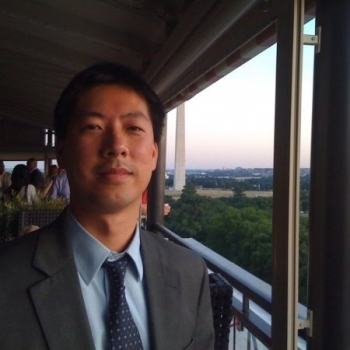Jun052014
Posted at 6:00 PM
Ed. note: This post is part of the Spotlight on Commerce series highlighting members of the Department of Commerce and their contributions to the Open for Business Agenda Strategic Plan.
Guest blog post by Phu Huynh, Chief of Staff (Acting), International Trade Administration
I was born in Saigon, five years before the Vietnam War ended. My family made a tough decision, one that benefitted me for a lifetime. My mother, five aunts, one uncle, four sisters and I were airlifted to the U.S. as Saigon fell. When we arrived in Chantilly, Virginia, we had very little. But, we had each other, the support of a local church and our public school. My mother and aunts taught us about our Vietnamese and Chinese heritages, which fortunately centered around great food. Just as important, they pushed us to learn English and become thoroughly integrated in the American experience. I’ve been given the opportunity in my lifetime to take the best from both worlds—from my Asian heritage and from the rich diversity that is America. The values I extrapolated from both backgrounds are so similar and are shared across the globe—dedication to family, hard work, respect of others and their cultures and faiths. I’m as likely to watch a Washington Nationals game with either Vietnamese banh mi sandwich or a hot dog.
I graduated from Virginia Tech with a degree in history, high hopes and no job. I’d like to tell you that I’m here because I executed each element of my master plan perfectly or that I had good fortune. But, opportunities don’t just happen without context. I applied hard earned skills and landed an internship at the White House. I worked hard to perfect my technical skills, becoming expert on every administration department and agency. I became a valued member of the team, in large measure, because no one else wanted to do the huge volume of detailed, non-political, technical work. But I learned something else even more valuable—that leaders in politics are often in short supply, peace and prosperity don’t just happen and that enlightened leadership was more critical than the technical aspects of my work. I was genuinely willing to learn from those I believed were the best leaders, and they were willing to share their experience and wisdom with me. I got hooked on Washington and this inexplicable political world in which we operate.
On the way to Commerce, I worked for the board of directors and senior management at the U.S. Export Import Bank, which finances mega deals and agreements in every creditworthy country. Working with dedicated career experts, U.S. exporters and financiers around the globe, we created complex, successful deals and transactions. There is nothing like the fulfillment of completing a job “well done.” I gleaned creative ideas that I translate daily into working solutions at the International Trade Administration. Experiences traveling to other countries to create a transaction, especially in emerging markets, taught me what to use and what to avoid. I did not avoid going to law school, attending Catholic University at night. Nor did I avoid practicing law for many years. Both experiences refined my ability to identify possible concerns.
I work in the International Trade Administration as acting chief of staff. As ITA acting chief of staff, I use these experiences to connect International Trade Administration resources with U.S. exporters and foreign buyers and investors, aiming to improve U.S. business and our relationship globally. I aim to give a problem before me my best shot—not every now and then, but all the time. I try to work toward constructive involvement—pulling together persons and groups with an interest at stake in an issue before us—and aim to promote trade for the U.S. and to understand possible concerns, especially in emerging markets. Working at the International Trade Administration allows me to help create a solution for the American people and feel good about a solid effort.
I have always sought out enlightened and dedicated leaders who help me open opportunities not possible in the past. I benefit from those leaders at Commerce who can recognize an opportunity worth pursuing, plan, drive it through our legislative and administrative process and garner public support. Pushing a good thought into action requires experience and skills. Those leadership skills will be put to good use as we implement the NEI/NEXT initiative to ensure that more U.S. businesses capitalize on new markets globally.
My best advice for young Asian Americans interested coming to Washington is to . . . come. Set your sights high. Find the best mentor or leader you can. Emulate what you think is best in them. Minimize in yourself what you think are weaknesses in others. Laugh and laugh at yourself. It’s one of the first big steps to maturing. Be able to laugh at your frailties or pretense—it’s key to remaining humble and in touch with reality. And in the words of a great Asian thinker—Confucius, when it becomes obvious that you cannot reach your goals, adjust your steps.

